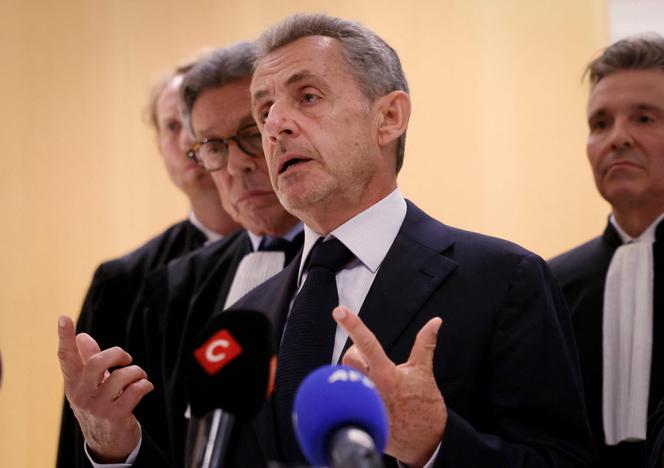


The French prosecutor whose office was behind the case against former president Nicolas Sarkozy, who was accused of having Libya fund his 2007 election campaign, denied the investigation into Sarkozy was motivated by "hatred," on Monday, September 29. On Thursday, Sarkozy was sentenced to five years in prison after a court found he had allowed his aides to approach the Libyan dictator Muammar Gaddafi, to help fund his 2007 presidential election bid.
The former president, who will be informed next month when he is due to begin his jail sentence, had said that the "hatred" towards him "definitely has no limits" immediately after the verdict.
"We have no hatred to express (...) Our compass is the law, it is the rule of law," said France's top prosecutor for financial crimes, Jean-Francois Bohnert, in a rare public comment to the broadcaster RTL.
He also echoed condemnation that was expressed by the Elysée and French President Emmanuel Macron over the "intolerable" threats made against the judiciary after the verdict, which have already led to the opening of two probes.
Sarkozy, 70, who led France from 2007-2012 and still retains influence on the right despite multiple convictions, has remained defiant after the verdict, which he said, in an interview published on Sunday, had "violated (...) all the limits of the rule of law." He has appealed the verdict, although, under the terms of the ruling, this will have no effect on his incarceration.
In an interview with the Sunday newspaper Le Journal du Dimanche, Sarkozy said he would in "no way" ask for a pardon from Macron. "To be pardoned, you must accept your sentence, and therefore acknowledge your guilt. I will never acknowledge my guilt for something I did not do. I will fight until my last breath to have my honesty recognised," he said. "I will win."
Even though he is expected to go to prison in the coming weeks, Sarkozy was still spotted Saturday in the Parc des Princes stadium in Paris, watching the local football team PSG play Auxerre in French football's top flight, an Agence France-Presse (AFP) photographer said.
